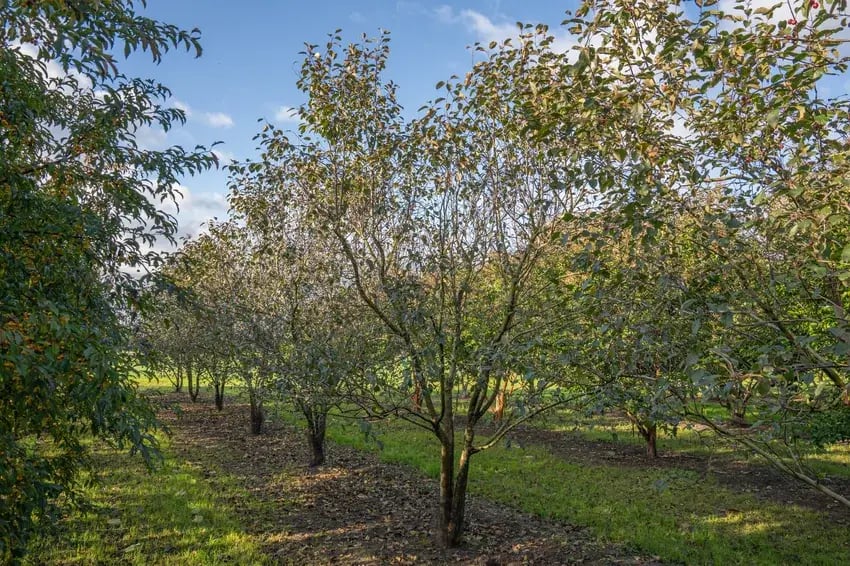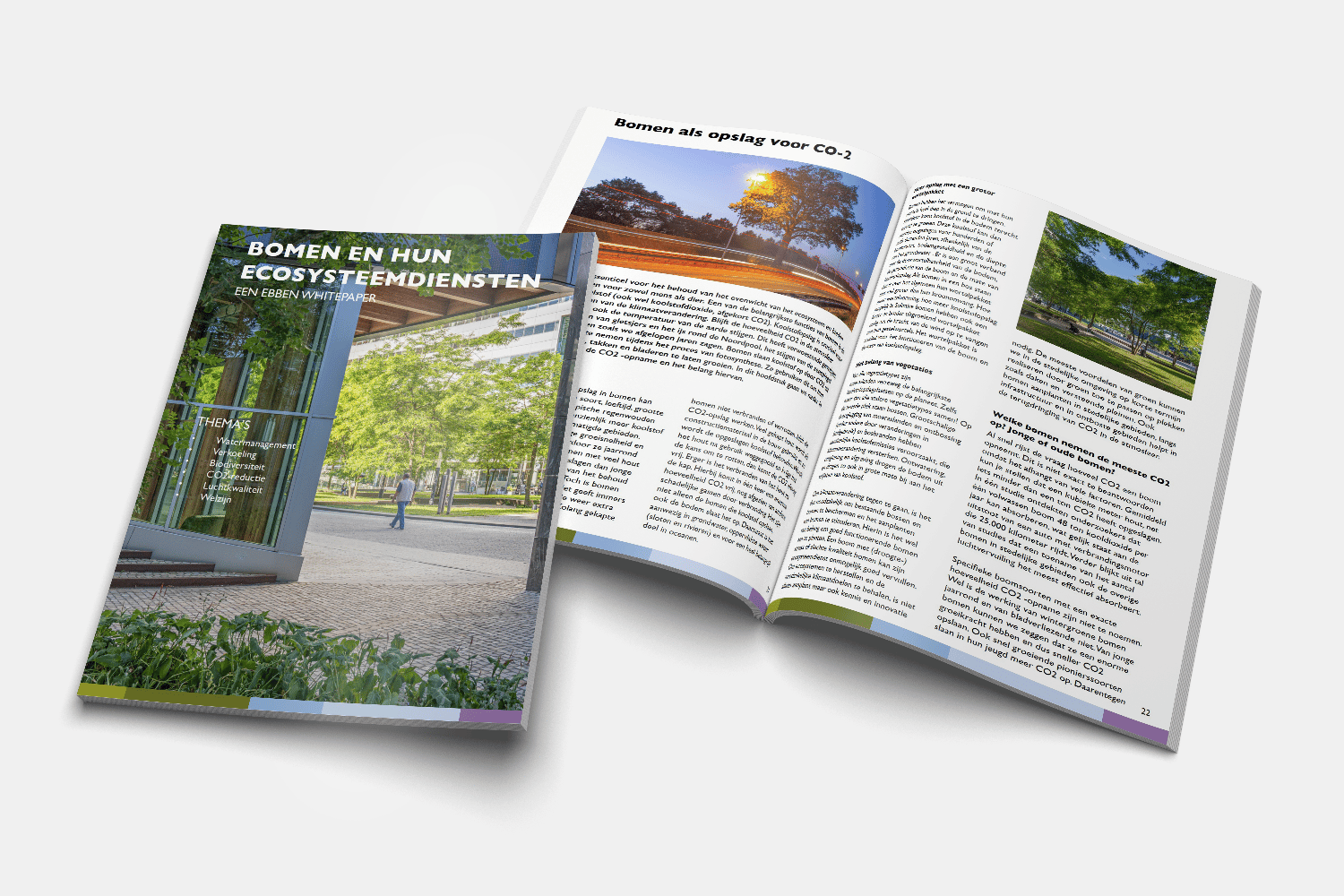Tree of the Month: Malus 'Mokum'

Malus 'Mokum', also known in Dutch as the red-leaved ornamental crab apple 'Mokum', is a striking tree. Like all other apple trees, it is a deciduous species, but with small ornamental fruits and large, eye-catching red blossoms. Many crab apple varieties have a broad, spreading growth habit, but 'Mokum' stands out with its narrow, upright form. Being a smaller tree, it offers tremendous practical value. Where other apple cultivars can sometimes be prone to disease, 'Mokum' is highly resistant. Get to know this plant better and consider including it in your design.
Colorful Apples
An ornamental crab apple is essentially the same as a regular apple tree, but the fruit is much smaller. While a regular apple produces fist-sized edible fruit, a crab apple bears fruit no larger than a sweet cherry—and in some cases no bigger than a pinhead. The abundance of small, colorful apples, combined with its often beautiful autumn foliage, makes the crab apple a valuable addition to plantings.
A Popular Cultivar
Malus 'Mokum' is a deciduous tree of Dutch origin. It was developed by the Dutch nursery Wansing in Haarlo, introduced into cultivation in 1996, and bred from a seedling of Malus 'John Downie' and Malus 'Liset'. This cultivar quickly became popular thanks to its unique combination of traits, making it an excellent choice for a wide range of applications.
Valuable in Every Season
One of the most striking features of Malus 'Mokum' is its profusion of fragrant blossoms. In late spring, the tree bursts into bloom with large, deep pink to magenta flowers with a rounded shape. During flowering in early May, the tree becomes a waterfall of pink blossoms. Combined with the emerging purple-red foliage, this creates a true springtime spectacle. The large flowers attract a wide variety of pollinators, including wild and honey bees, as well as early butterflies, boosting biodiversity.
Other noteworthy details include the red-tinted leaf veins visible in the green summer foliage and the slightly reddish bark. Where the purple spring leaves once formed a perfect backdrop for blossoms, the tree develops deep green foliage throughout the summer. As the season progresses, the leaves turn a warm golden yellow in autumn, creating a stunning fall display.
Toward the end of summer, the striking violet-red fruits begin to appear. For a crab apple, these fruits are relatively large. They are not only highly decorative but also provide a valuable food source for overwintering birds. Blackbirds and fieldfares, in particular, feast on the fruits in a matter of weeks during cold spells. In milder winters, the apples often remain on the branches until late winter.
Use and Planting Site
This crab apple has an upright growth form with light side branches and a broad, oval, semi-open crown, typical for an apple tree. It usually reaches a height of 5–7 meters, with a crown spread of up to 5 meters. This makes it an excellent choice for smaller gardens or public spaces. Thanks to its compact size, it also performs well in streets and squares when planted in a tree pit with proper soil preparation. However, it is sensitive to road salt and sea winds.
Malus 'Mokum' thrives in full sun to light shade, with sunnier sites encouraging the richest blossom and fruit production. In more sheltered locations, flowers last longer, but the tree can become more susceptible to pests and diseases. Well-drained, fertile, moderately moist soil is essential at planting. Once established, the hardy tree can tolerate relatively dry conditions. Maintenance is minimal, usually limited to pruning a few misaligned branches or thinning the crown for better air circulation. Crab apples are very hardy and bloom in May. In the event of late frost, the leaves and blossoms may suffer damage, but the tree recovers quickly. Among red-flowering crab apples, 'Mokum' is considered one of the healthiest. Under poor conditions, however, it may show minor scab and, at older age, trunk cracks.
Conclusion
In summary, Malus 'Mokum' is a beautiful variety with great ornamental and practical value. It is a smaller tree that grows vigorously, making it suitable for gardens, parks, streets, and driveways. It performs well in paved environments, provided the soil is well-prepared. With its striking blossoms, compact size, and disease resistance, 'Mokum' is an excellent addition to any design. If you are looking for an elegant, low-maintenance tree with exceptional flowers, consider planting this ornamental crab apple.

Thijs Dolders
Free Whitepaper



.jpg?length=500&name=Betula%20nigra%20500-600-HM-101220-4-winterbeeld%20(1).jpg)







